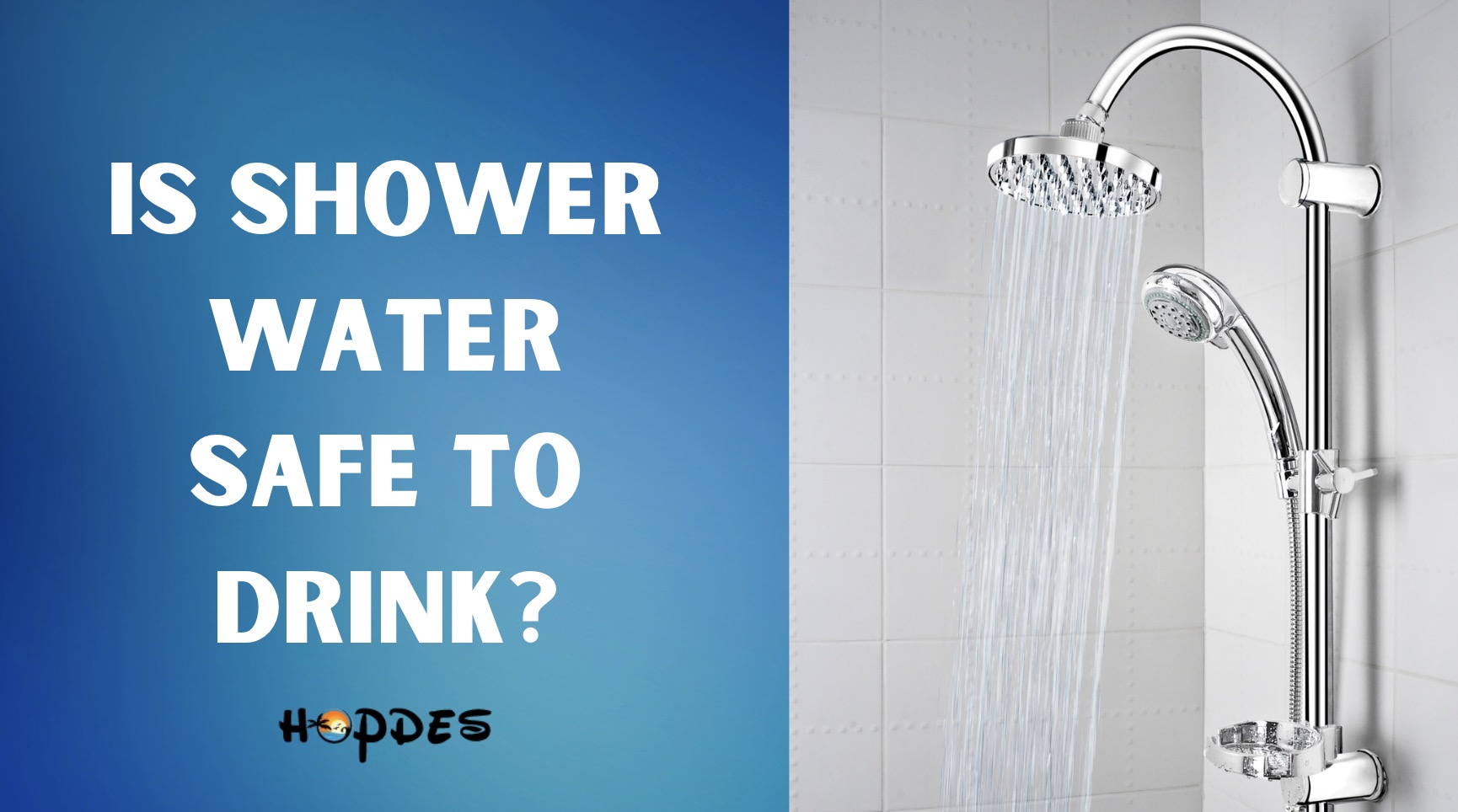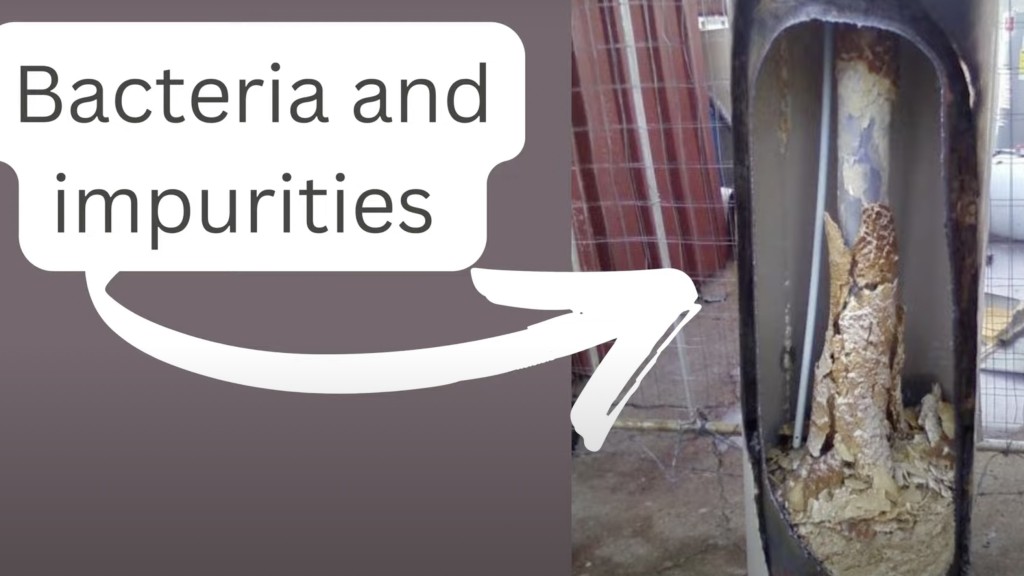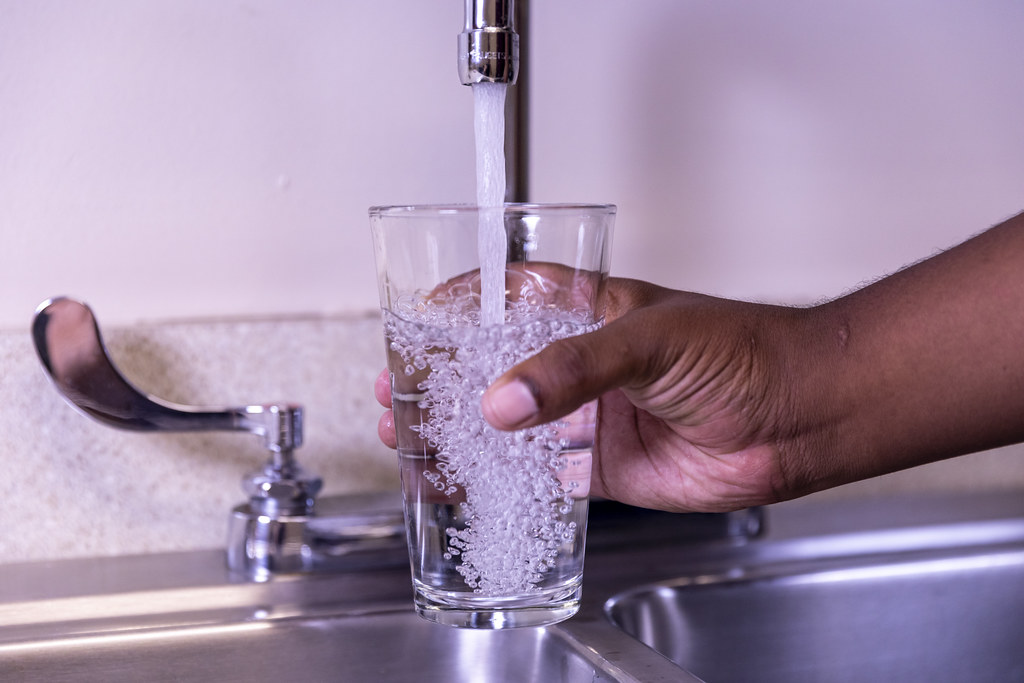
During the middle of the night, especially on hot summer nights, feeling thirsty is quite common. While you’re in bed, the notion of heading to the kitchen can feel like a journey that spans miles. In those moments, the closest option is often drinking water straight from the shower.
Yet, whether you’re quenching your thirst while taking a shower or even when you’re about to sleep, the question might arise: Is a water shower safe to drink? To uncover a thorough answer to this query, let’s delve deeper.
Is Shower Water Safe to Drink?
NO – water from the shower is not safe to drink as it can contain several harmful bacteria not suitable for the human body.
Sometimes, there might be different water sources based on your location and fixtures. For instance, many rural homes draw water from a well. Since wells aren’t regulated by the Environmental Protection Agency (EPA), it’s the owner’s duty to ensure water cleanliness. They might need to consult a trustworthy lab or the local health department to confirm if the tap water is safe to use.

On the other hand, many homes in urban areas receive their water from a public source that the EPA monitors. This group establishes guidelines for how much harmful material can be present in the water you use.
Therefore, it’s a good idea to be aware of the water quality in your city. Considering these sources, we strongly advise against drinking shower water.
Why Shower Water Isn’t Suitable for Drinking?
Just because shower water is fine for bathing doesn’t mean it’s safe to drink. So, before quenching your thirst while showering, let’s explore the reasons why your shower water might not be suitable for consumption.
Water in Old Pipes
If your house is old and the pipes haven’t been replaced, there’s a chance water issues might arise. In older homes, the pipes might be made of materials like galvanized steel or lead. As time passes, these pipes can wear out, allowing metals to mix into the water. This situation has the potential to result in lead poisoning.

Symptoms of lead poisoning include things like higher blood pressure and stomach discomfort. Moreover, if substances start building up inside the pipes, the water coming from your shower and taps might not taste or look pleasant. This makes it unsuitable for drinking.
Water quality from the bathroom sink should be checked frequently, especially in older homes. It’s possible you’ll also need to upgrade the piping to something more modern, like copper or PVC. By following these procedures, you may guarantee that your shower’s hot water is safe for usage.
Suggested Reading: Where Does Dubai Get Its Water? Is It Safe To Drink Tap Water?
Water Heater
The shower water goes through a water heater before it reaches your faucet. The water heater has a role in determining the quality and temperature of the shower water, but it can sometimes lead to problems that make the water not suitable for drinking. We’ve identified the following as potential issues associated with the water heater:
Unpleasant Odors
If the water heater is dirty or hasn’t been used in a while, it could trap bacteria that cause bad smells, like sulfur or rotten egg kind of stink. This can make the shower water less appealing for drinking or even for regular use. To address this, it’s crucial to maintain the cleanliness of the water heater and replace the anode rod (if it’s corroded).
Water Discoloration
When the water heater is rusty or has a buildup of sediment, it might give the shower water a weird color—brown, red, yellow, or white. This doesn’t just mess with how the water looks and tastes; it can also stain your clothes and dishes. To tackle this, it’s advisable to periodically flush the water heater and consider installing a water filter or softener to eliminate iron or calcium.

Taking care of your water heater is important for making sure your shower water is safe and enjoyable. But remember, it’s a smart move to avoid drinking shower water whenever you can, as it might still carry germs or stuff that’s not good for you. Go for filtered or bottled water when you’re feeling thirsty.
Shower Tank
Water in a shower tank may become undrinkable if left to sit for an extended period of time before being used. If the water tank isn’t cleaned often, stuff like leaves, dirt, and debris might gather at the tank’s bottom. Over time, this introduces toxins into the water supply.

Also, if the tank’s walls or floor have cracks or leaks, things from outside like bird droppings or animal waste could get in. This could cause bacteria to grow in the water.
Storage tanks underground (USTs) can rust and leak, which messes up the quality of the water underground. Tanks aboveground (ASTs) might face weather problems and even people damaging them.
Either way, drinking water from here is not a recommended option.. Let’s keep going!
Suggested Reading: 18 Reasons To Keep a Bread Clip In Your Wallet [New Tricks]
Dirty Shower Heads
Drinking shower water might not be safe, especially if the shower head is dirty or hasn’t been used in a while. The shower head can be a breeding ground for harmful germs that can lead to infections or diseases. Several types of germs thrive in such conditions such as Legionella bacteria that cause respiratory problems and Mycobacterium avium subspecies paratuberculosis that cause Crohn’s disease.

To avoid these health risks, it’s crucial to clean your shower head regularly. You can use an all-purpose bathroom cleaner and a scrubber or toothbrush to remove scale or debris. Soaking the shower head in vinegar or bleach for a few hours can help kill germs. After being away, run the shower for a few minutes to flush out stagnant water. Remember, drinking or inhaling shower water mist can increase your exposure to harmful germs.
Is It Safe to Drink Filtered or Softened Shower Water?
Shower water that has been filtered or softened is safer to drink than unfiltered water due to fewer minerals and contaminants. However, it’s not a good idea to drink shower water because it hasn’t been filtered as thoroughly as tap water and may still contain harmful bacteria.

Even if you have a good shower head for hard water, it might still have dirt that can contaminate the water. While drinking shower water in an emergency probably won’t make you seriously sick, it might taste strange. But regularly drinking shower water could make you sick. So, it’s better to choose bottled or boiled water whenever possible.
Editor’s Pick: 5 reasons to put a crayon in wallet during travel [2023 UPDATED]
Conclusion
In conclusion, drinking water from the shower is not a safe practice due to several potential risks associated with the water source, pipes, water heater, storage tanks, and shower head. While filtered or softened shower water may be somewhat safer, it still carries the possibility of harmful bacteria and contaminants. It’s essential to prioritize clean, potable drinking water from trusted sources like tap or bottled water. Taking proactive measures, such as regular maintenance of plumbing and water heaters, can help ensure the safety and quality of water used in the home.
Is Shower Water Safe to Drink? - FAQs
Drinking water directly from your shower is not recommended due to potential contamination risks from old pipes, water heaters, and shower heads. It’s safer to use potable water sources.
While filtered shower water is generally safer than unfiltered water, it may still carry some risks. It’s not advisable for regular drinking, and it’s better to opt for tap or bottled water.
Yes, drinking shower water can pose health risks due to potential bacterial contamination. Harmful germs can thrive in shower heads and cause respiratory or gastrointestinal issues if ingested or inhaled.
A glass beside your bed is always helpful as a source of safe drinking water at night time.
 Reviewed by
Reviewed by ![What To Wear To a Drag Show? [HOTTEST Outfit Ideas]](https://hopdes.com/wp-content/uploads/2024/01/What-to-wear-to-a-Drag-Show-390x220.jpg)



![What to Wear to an Outdoor Concert? [Cute Outfit Ideas]](https://hopdes.com/wp-content/uploads/2023/11/What-to-Wear-to-an-Outdoor-Concert-Cute-Outfit-Ideas-390x220.jpg)

